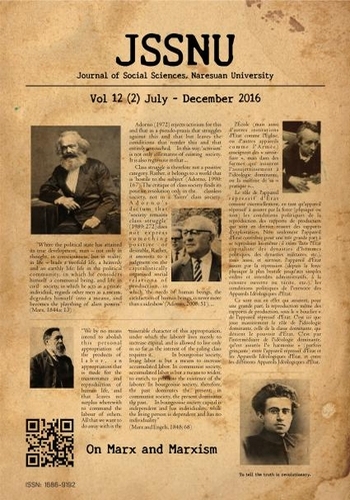The Politics of Accelerationism: Future, Modernity, Technology, and Subjectivity in the Late Capitalism*
Main Article Content
Abstract
This article highlights the politics of accelerationism as a political antagonism in cyberspace. Social and economic conditions which are structurally shaped by digital technology can produce at least two scenarios in consequences; maintaining a current condition or disrupting it. On the first scenario, accelerationism is meant to rapidly produce things, images, and products in cyberspace in concord with a requirement of the late capitalism. This, in effect, culminates in consolidating a status quo of the late capitalism. Accelerationism in this scenario is substantiated as an unchanged image for the future. It can be termed succinctly as ‘modernity in linearity’. In contrast, the politics of accelerationism in the second scenario is inspired by Karl Marx’s ‘Fragment on machines’ and other prominent thinkers such as Gilles Deleuze and Jean-Francois Lyotard. Therefore, the second scenario shows a very nature of antipathy and difference that contributes to a disruption of the linearity. In terms of its antagonism, this initially marks recalcitrance to the late capitalism in favour of different futures and imaginations. Given a significance of the second scenario, the article examines subjectivity of the accelerationists who are in compliance with this setting in a Lacanian psychoanalytic perspective coupled with a philosophy of technology. The inquiry is that what would be the image of the subjectivity of those whose aim is to disrupt the late capitalism, for a revolutionary direction, but does not necessarily progress towards post-capitalism?


